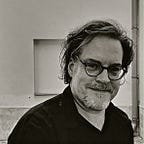Review: “Two Hours of Pow!” — Rufus Wainwright Channels Judy Garland at Carnegie Hall
By Bradley Bambarger <2006>
Kate McGarrigle, banjo in hand, sang folk tunes to her infant son, but he didn’t seem to like them. It was only when she sat at the piano playing Tin Pan Alley numbers that he brightened up, eventually learning “Over the Rainbow” himself. Later, the young mother would even rouse the boy in the wee hours so he could sing the song for her friends.
That boy grew up to be art-pop star Rufus Wainwright, and his childhood party trick grew into an Olympic-level event. For two sold-out nights at Carnegie Hall, the Canadian-bred New Yorker and a snazzy orchestra re-created Judy Garland’s fanatically adored 1961 live album Judy at Carnegie Hall, song by song and then some.
What could have been impossibly ambitious was utterly winning. Not that “two hours of pow!” — as Garland described her concerts — wasn’t an obvious challenge for Wainwright. Unlike Garland, he isn’t an old-school trouper whose business is the voluminous words and crazy rhythms of cabaret standards. Yet the event had the sort of loose, “let’s put on a show” atmosphere where even false starts can be fun.
Wainwright’s singing doesn’t have Garland’s brassy razzamatazz. And that can be a good thing, however sacrilegious it may be to say. The appeal of Wainwright’s voice is its plaintive timbre. Not all the songs were an ideal fit for his vocal cords, and the long night held a flatly droning phrase or two. But his way with some of the more intimate songs, such as “The Man That Got Away,” was less theatrical, more affecting.
After two nights of nearly 30 songs each, one wondered if Wainwright would be able to get out of bed yesterday (or even speak). Negotiating the rhythmic minefield that is the show’s bizarre, bongo-driven arrangement of “Come Rain or Come Shine” was an athletic achievement — and certainly foreign to the baroque sensuality of his own music.
Watching Wainwright helped one gain new appreciation for Garland’s stamina. At age 38 in April 1961, she was six years older than he is now and coming back from hepatitis. Garland’s glamour in the face of personal tribulations is what has helped make her a gay icon for generations (with the overwhelmingly male ovations standing out even on Judy at Carnegie).
Wainwright, who has always been out and proud, timed his extravaganza as a prelude to Gay Pride week. He wasn’t above playing to the crowd with a camp flip of his hair, but his irony also had a winking, self-deprecating charm, as when he marveled at pulling off the over-the-top “Come Rain or Come Shine,” saying: “That wasn’t me, that was the queen at the end of the bar who you want to get away from but just can’t.”
Gay rights have evolved exponentially since the early 1960s, as have racial sensitivities in American song. Wainwright, shrewdly, referenced the minstrel aspect to some of Garland’s Al Jolson-style material, such as “Dixie Melody” and “Swanee,” by noting the “questionable entertainment” that this country indulged itself with back in the day. Even with tongue in cheek, he launched himself into the songs with gusto.
The program’s one cringe-inducing episode was the guest spot by Lorna Luft, Garland’s daughter, whose mile-wide vibrato marred the duet on “After You’ve Gone.” But the show had a secret weapon in up-and-coming Broadway conductor Stephen Oremus, who kept the 36-piece orchestra spruce in those vintage arrangements. The ensemble’s guitarist was jazz sage Bucky Pizzarelli, who adorned “How Long Has This Been Going On?” with a pearly solo.
Like Garland, Wainwright comes from a show-business brood. His mother is a folk-music luminary (in a duo with her sister Anna), as is his father, Loudon Wainwright III. (Being a Garland fan is in his blood, too: A photo in the program book showed his paternal grandparents at the 1961 concert.) In scenes that must have replayed past sibling one-upmanship, his singer-songwriter sister, Martha, came out to sing melodramatic versions of “Stormy Weather” and “Someone to Watch Over Me.”
Near the night’s end, McGarrigle accompanied her son on a touching “Over the Rainbow.” She played the piano, setting aside the banjo she had brought out as a joke.
(Originally published in 2006 in The Star-Ledger of New Jersey.)
